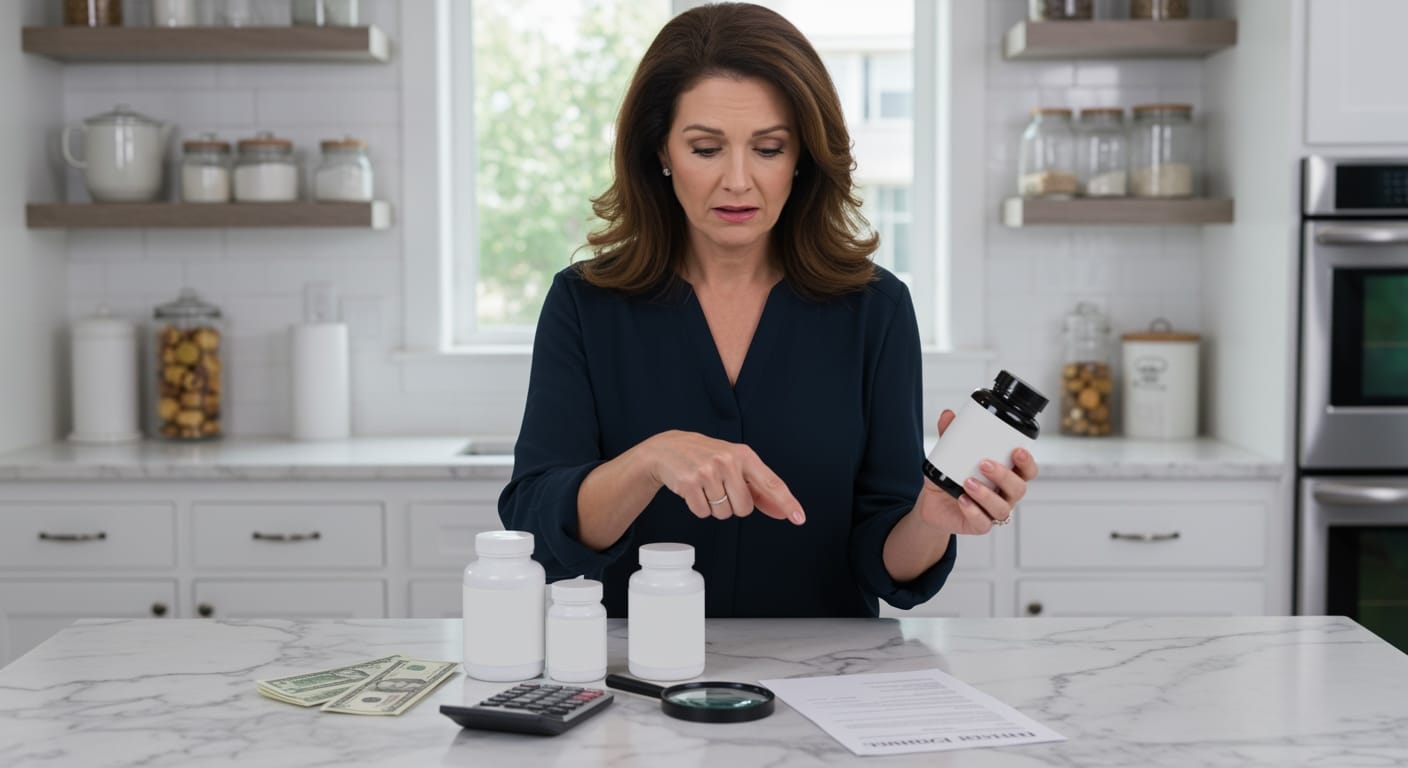✪ Key Highlight: FTC forces Roca Labs to pay $409,000 in refunds to 7,481 consumers after court finds deceptive weight loss claims.
Introduction
Thousands of Americans who bought weight loss supplements believing they would shed pounds quickly are finally getting their money back.
The Federal Trade Commission just announced that Roca Labs must pay over $409,000 in refunds to consumers who fell victim to the company’s false advertising claims.
Hi, I’m Abdur, your nutrition coach and today I’m going to analyze this landmark FTC enforcement action against deceptive weight loss supplement marketing.
What Did Roca Labs Do Wrong?
Roca Labs made unsubstantiated promises about rapid and dramatic weight loss that simply were not true.
The company marketed its supplements with claims that had no scientific evidence to back them up.
Even worse, they created fake news websites that appeared to be unbiased sources of information.
These websites were actually financially connected to Roca Labs and featured fake positive reviews.
The company also tried to silence unhappy customers by threatening to enforce “gag clause” provisions.
These clauses were designed to prevent people from posting negative reviews or testimonials online.
This created a false impression that all customers were satisfied with the products.
✪ Fact: The FTC has collected nearly $107 million in consumer restitution for deceptive weight-loss claims since 2010.
How Are Consumers Getting Their Money Back?
The FTC is sending payments to 7,481 consumers who were harmed by Roca Labs’ deceptive practices.
These payments are being distributed through both checks and PayPal transfers directly to affected customers.
Consumers who receive checks must cash them within 90 days of receiving them.
Those who receive PayPal payments have only 30 days to redeem their refunds.
The FTC is also sending claim forms to 34 consumers who bought Roca Labs products before October 2015.
These individuals have until October 7, 2025 to submit their claims for potential compensation.
The total refund amount of over $409,000 represents money that the court ordered Roca Labs to turn over.
✪ Pro Tip: Always report fraudulent weight loss product claims to the FTC to help protect other consumers.
Why This Case Matters for All Consumers?
This enforcement action sends a clear message to supplement companies that false advertising will not be tolerated.
Jessica Rich, Director of the FTC’s Bureau of Consumer Protection, stated that these defendants not only tricked consumers with phony weight loss claims.
They also compounded the deception by advertising on pretend news sites, making it impossible for people to know whether they were seeing news or an ad.
The case highlights how companies exploit consumer trust by creating fake review sites and news platforms.
Health care fraud, including false advertising of weight loss products, was one of the top ten fraud categories in 2021.
This type of fraud cost U.S. consumers $17 million in losses during that year alone.
The New York State Division of Consumer Protection warns that weight-loss scams can place consumers at risk of losing more than just cash.
✪ Note: Dietary supplements can jeopardize your health, so always consult healthcare professionals before trying new products.
How to Protect Yourself from Weight Loss Scams?
The most important rule is simple: if something sounds too good to be true, it probably is.
Always research any weight loss product thoroughly before making a purchase.
Check the ingredient list on the back of all consumable products to understand what you are putting into your body.
Be especially suspicious of products that promise rapid or dramatic weight loss without diet or exercise.
Look for red flags like fake news sites, testimonials that seem too perfect, or companies that try to silence negative reviews.
Remember that there is no substitute for a healthy diet and regular exercise when it comes to safe and effective weight loss.
Companies often take advantage of people’s lack of time by pushing unhealthy, quick consumable products that seem convenient but harm health over time.
✪ Pro Tip: Always prioritize your health over convenience when choosing weight loss methods.
The Bottom Line
The FTC’s action against Roca Labs proves that regulatory agencies are serious about protecting consumers from deceptive weight loss marketing.
Real weight loss requires real commitment to healthy eating and regular physical activity – there are no magic shortcuts.
I encourage you to share your thoughts about this case or any questions you might have about evaluating weight loss products in the comment section below.
References
At NutritionCrown, we use quality and credible sources to ensure our content is accurate and trustworthy. Below are the sources referenced in creating this article:
- FTC: FTC Sends Refunds to Consumers Harmed by Weight Loss Supplement Marketers’ Deceptive Claims
- New York State: NYS Division of Consumer Protection Warns Consumers of Health and Weight Loss Scams
- FTC Consumer: The Truth Behind Weight Loss Ads
- Klein Moynihan: Supplement Purveyors Sued for Deceptive Weight Loss Claims on Fake News Sites
- AMA Journal of Ethics: Does Regulating Dietary Supplements in a World of Social Media Influencers Promote Public Safety





